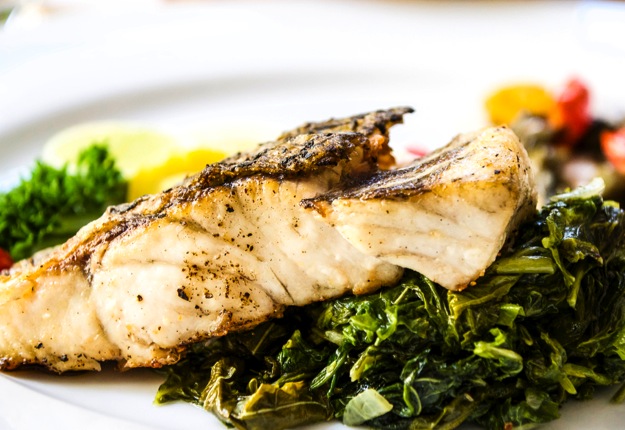What foods should be avoided during pregnancy and what foods are safe during breastfeeding are very common questions asked by women.
I’m going to share with you the current recommendations on fish consumption from the Food Standards Australia and New Zealand (FSANZ). The information is based on what dietary patterns and type of fish we eat in Australia. The information is based on quality research and is a safe information guide to the fish consumer.
Here are some answers to common questions:
What is Mercury and is it safe?
Mercury or methylmercury (MeHg) is what naturally accumulates in the aquatic food chain. Thankfully, the majority of the fish that we consume contains very low levels and regulations are in place for consumer safety, ensuring the level of mercury is low in fish sold within Australia.
You should know, high levels of meHg can harm the nervous system of adults but more vulnerable stages are unborn babies and young children because the brain is still developing. There is evidence to suggest:
- The possibility that MeHg at low exposure levels might affect fetal growth among susceptible sub-groups
- Low levels of pre-natal MeHg exposure may cause early childhood neuro-cognitive effects
Should I eat fish during pregnancy?
Yes. Fish is recognised for the nutritional health benefits including Vitamin D, Iodine, omega-3 fatty acids (DHA essential for optimal fetal neurodevelopment) and high quality protein. It is about being aware of the type and quantity of fish that is safe to consume to still receive the health benefits.
Now the accumulation of MeHg depends on size and age of the fish, meaning a big old fish has more meHg than a little youngster. Therefore guidelines are based upon age, Type and amount of fish you may or may not wish to consume. I have simplified the table below.
Pregnant women may consume up to 3 serves at 150g (450g total) per week of fish listed below:
- Mackerel
- Silver Warehou
- Atlantic Salmon
- Canned Salmon
- Tuna in oil
- Herrings
- Sardines
Pregnant women may consume 1 serve (150g total) per week of fish listed below and NO other fish serve in this same week:
- Orange Roughly (deep sea perch)
- Catfish
- Shark (flake)
- Billfish (Swordfish, Broadbill, Marlin)
Source: FSANZ *The Australian Dietary Guidelines recommend eating 1-2 fish meals per week.
Is it safe to eat fish while breastfeeding?
Yes. As long as you are following the above recommendations during pregnancy and leading up to falling pregnant, the amounts of mercury in your body will be very low. The beneficial property of breast milk far outweighs the possibility of the smallest amount of mercury being a risk to your baby. You may like to limit exposure all together if you still don’t feel comfortable with the idea.
Can I take fish oil supplements during pregnancy & breastfeeding?
Yes. Fish oil tablets are not considered a major mercury source for consumers and I would highly recommend taking a Pregnancy Fish Oil Supplement, especially DHA (omega-3 fatty acids) for cognitive development.
During pregnancy and lactation, requirements for DHA are increased due to utilisation during normal development of the brain, eyes & nervous system of the growing foetus and baby. The supplements are going to assist mum by maintaining a healthy mood, reducing risk of age-related cognitive decline as well as the beneficial transfer to your baby via breast milk.
So… will this cure baby brain? Let’s just say it may assist this “condition” you can decide based on personal experience!
Are you eating fish during your pregnancy and while breastfeeding or are you avoiding it?





















7:53 pm
10:35 am
9:10 am
6:27 pm
5:15 pm
8:21 pm
9:06 am
4:08 pm
5:48 pm
-

-
-
mom94125 replied
- 19 Oct 2015 , 1:26 pm
Reply10:40 am
7:13 pm
3:32 pm
3:02 pm
3:26 pm
5:09 pm
3:54 pm
9:34 pm
-

-
-
mom94125 replied
- 17 Oct 2015 , 7:18 pm
Reply10:02 pm
3:22 pm
3:13 pm
- 1
- 2
- 3
- »
Post a commentTo post a review/comment please join us or login so we can allocate your points.